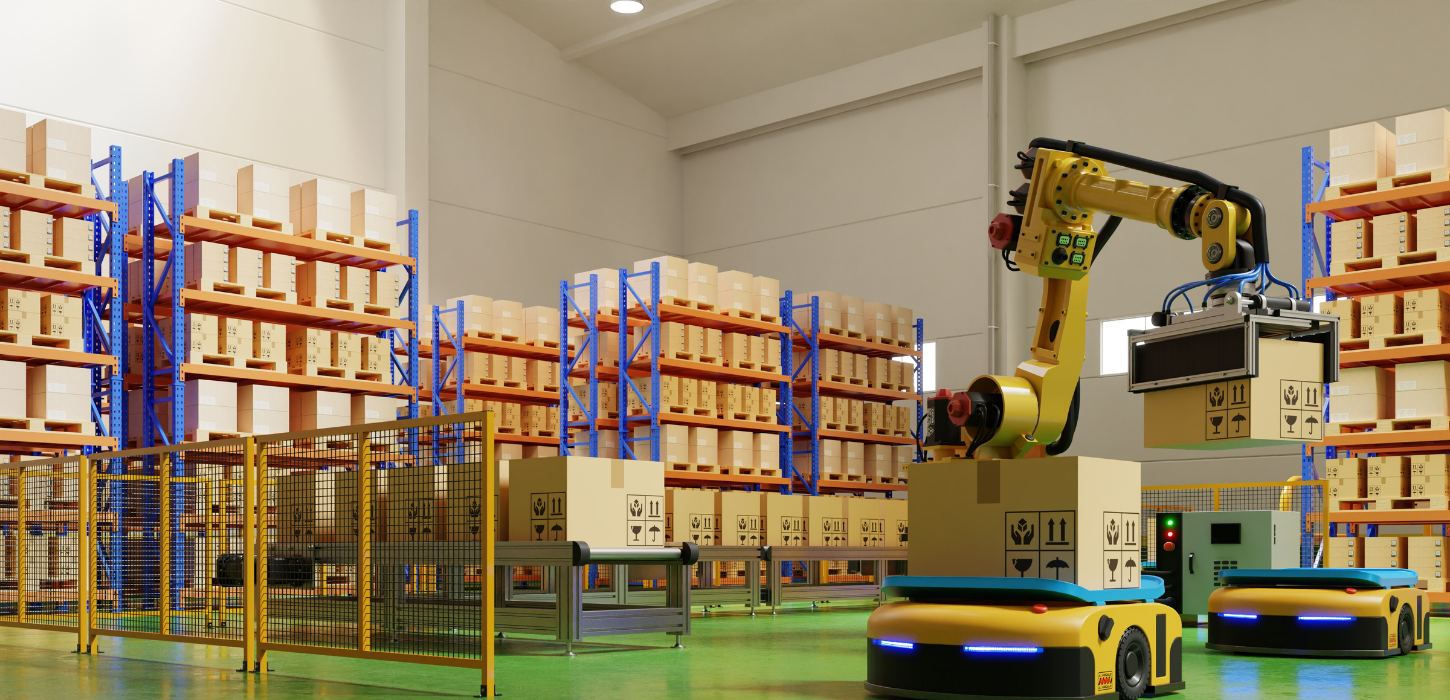Written by guest contributor Megan Ray Nichols, a freelance stem writer and the editor of Schooled By Science. For more from Megan, you can follow her on Twitter or subscribe to her blog here. a
Investing in automation is on the rise, with increasing technology and industry demands driving this trend. Discover what makes spending money on automation a smart decision for any warehouse manager, as well as why this trend is on the rise now.
Automation and Robots Overturn Warehouses
The presence of robots is increasing in warehouse automation — the compound annual growth rate of robots is anticipated to go up by 11.8 percent from 2017 to 2022. Robots take on more dangerous and tedious tasks around a warehouse for better efficiency and accuracy. As a part of the growing trend in automation spending, robots have become an integral part of warehouses today and in future operations.
Warehouse Management Systems Take Over Operations
The software side of automation is a warehouse management system (WMS). These systems control the processes in your warehouse. They can give you real-time inventory information. When combined with automated systems such as automatic storage (AS) and retrieval systems (RS), WMS becomes more powerful, making your facility more efficient.
With an increase in automation in warehouses, operators need WMS and warehouse control systems (WCS) to manage them. Experts predict a 14.1 percent compound annual growth rate of revenue for WMS between 2017 and 2025. Both automation and WMS are results of the increase in e-commerce and a labor shortage in manufacturing.
E-commerce Grows Demand for Automation
Today’s consumers expect faster delivery than ever thanks to e-commerce, which makes fulfilling more orders in a shorter time harder for human workers. Automated systems don’t make mistakes, can work 24 hours a day and don’t need breaks. Automated systems can also make it easier for warehouses to fulfill large or complicated orders. With a WMS, the chances of losing paperwork drop to zero, increasing the accuracy of the orders.
In many ways, warehouses are eliminating the middleman and shipping directly to consumers. With e-commerce now making up 8.2 percent of retail sales and growing, this sector will continue to drive the need for more warehouses to provide the fast fulfillment customers expect.
Labor Shortages and Land Prices Make Automation Attractive
Making the most of the available land is more important now than ever. Manufacturing labor shortages stem from a lack of skills and a general misunderstanding of the field. To combat this, many facilities have begun automating storage and retrieval, which reduces the need for more employees while it makes more efficient use of the increasingly costly storage space.
Despite the decrease in labor, industry output has increased by 85 percent since 1987. To match this, the average warehouse size has grown almost three times larger than before 2000, but this may not be enough with rising land prices. Warehouse rental rates leaped 28 percent from 2011 to 2015 and showed no signs of slowing. This means more is required of each facility, whether it’s for manufacturing or a warehouse.
The Future of Warehouse Automation
The rise in the availability of WMS, robots and AS/RS make it an appropriate time to begin investing in automation technology. The current industry demands for a reduced workforce, increased workload and higher land prices make automation a necessity in today’s economy. Though many managers have been concerned about investing in automation in the past, more and more are putting money into their warehouses for the future.




0 Comments